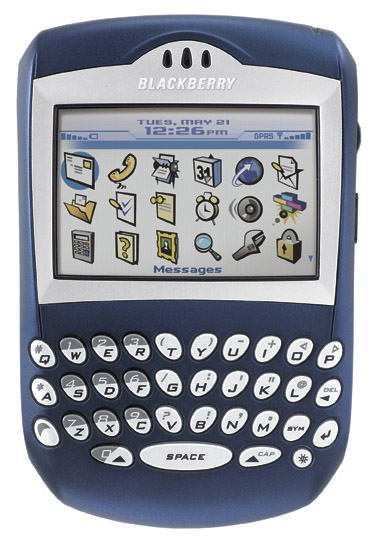Traveler beware: Data-hungry smartphones


My colleague Zack Whittaker recently discovered how much data his iPhone was shooting back and forth on an extended trip to the U. S. (he's based in the UK). Just doing mundane things like email on his phone resulted in a large data roaming charge from his carrier in the UK.
Zack was so taken aback by this data roaming charge he switched back to the BlackBerry (not the one pictured here) after this trip. While the BlackBerry is gentler on data consumption than other options, with a little planning perhaps he could have avoided the big data surcharge.
I suspect Zack isn't the only traveler to run into this situation, and it's directly related to the inclusion of Wi-Fi on most smartphones. Savvy phone owners know that Wi-Fi is much easier on battery consumption than 3G/4G data connections as well as data consumption, and phones are kept on Wi-Fi a lot of the time.
I regularly check my data plans to make sure I am not pushing up against data caps, and never do. That's in large part because I leave all of my devices on Wi-Fi as much as possible. Data used on Wi-Fi isn't reflected in the data usage statistics as it is not tracked. I suspect if I took a 2-week trip on data only, I would be quite surprised to see how much data I was using.
Staying on Wi-Fi is not always easy to do when traveling, and smartphone owners discover the hard way that using the phone on a 3G/4G connection taps into the data plan quickly. It's harder on the battery too, as many who travel frequently know all too well. It can be a common occurrence for the battery to start running dry before the end of the day. The sudden switch from Wi-Fi to 3G/4G connections can be a big change.
Smartphones are always working on communication, even when not actively being used. Push email means the phones are always going back and forth with the email server to dish up the email as soon as possible. Those who only get a few emails a day may not worry about it, but those like Zack who get hundreds quickly find out that the data well can run dry quickly.
It is a good idea to get on Wi-Fi as much as possible when traveling to avoid the data consumption surprise. That's not always as easy to do in the real world, but it makes advance planning especially important. Savvy business travelers are known to plan remote work venues for the Wi-Fi, and rightly so.
Related: Face off: Novatel 4G LTE MiFi vs. Samsung 4G LTE Mobile Hotspot
I often take my 4G/LTE Mobile Hotspot along on trips for those times when Wi-Fi isn't readily available. It lets me use my laptop, tablet, and smartphone on a single data connection. That keeps my smartphone data plan under better control.
It's a good idea to realize how much data different tasks can consume, not just on smartphones but on tablets, too. Dwight Silverman of The Houston Chronicle recently discovered just watching two 30-minute TV programs on his iPad used up over a gigabyte of 4G data. It all adds up, and it pays to keep an eye on what you do on top of all the background activity that devices are doing.
If you want to get a handle on how much data your phone uses over time, there's an easy way to do it. Just turn the Wi-Fi off in the phone settings and use only a cellular data connection. Keep a close eye on the data consumption while doing so, either through the phone's utilities or the carrier's web site. Be prepared to be shocked if you try this little experiment.
As for my buddy Zack, he's been a Crackberry for a long time. I suspect he was just looking for an excuse to switch back, and that's OK. He likes the BlackBerry so that's what he should be using.
Modern smartphones are always using data in the background, it's part and parcel of the smartphone experience. While on Wi-Fi nobody cares, but switch to 3G (and especially 4G/LTE) and everybody need to pays attention, or likely pay up.
Related posts:
- How to fix the Android update mess: Paid updates
- New Year’s resolution for Google: Fix the Android update situation
- Cutting through the FUD about Windows Phone updates
- Microsoft is in the driver’s seat for Windows Phone updates
- AT&T’s business model: why your mobile bill keeps going up
- The Flawed Android Update Process; Too Many Cooks
- Will the new Android consortium fix the update fiasco?